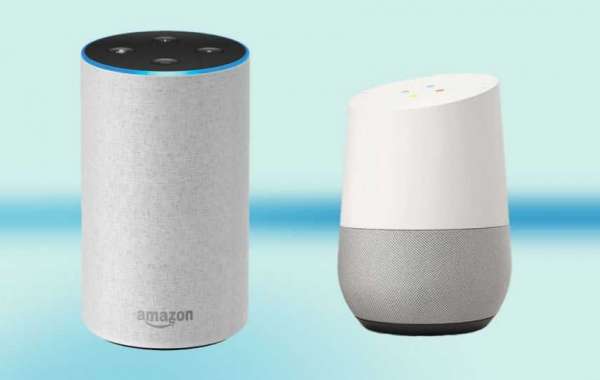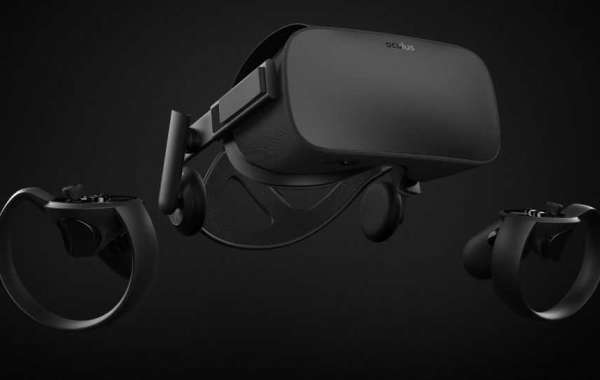They're the mammoths of the web, one overwhelming pursuit, the other lord of the online shop. In any case, with regards to the race to manage the shrewd speaker space, the Amazon Echo and Google Home are pretty equitably coordinated.
The voice controlled sound gadgets guarantee to take the strain off your regular daily existence – need to set a period? Simply ask the Google Assistant. Need to play your most loved spring cleaning playlist without lifting a finger? Your desire is Amazon Alexa's order. Both voice-initiated computerized stewards can do a large number of errands, numerous comparative, yet with some key contrasts between the two item goes that you'd be insightful to know about.
Anyway, it's the eventual fate of speakers – yet which is for you? Amazon Echo, or Google Home? What's more, which particular model suits your requirements? We put them no holds barred.
Amazon Echo: the diverse models looked at
How about we commence with the brilliant speaker that began everything – the Amazon Echo. Its vanilla form is likely where you'll need to start – it stands 14.8cm tall and sounds really damn useful at its cost, supporting Bluetooth and Wi-Fi associations, with the mark blue-ring around its best that reveals to you when it's tuning in the wake of hearing its default wake word, "Alexa".
The Amazon Echo Dot
The Amazon Echo Dot
Maybe the most prominent Echo of all however is the Echo Dot – it's the least expensive of the whole bundle and is about an indistinguishable size from a hockey puck. Its size means its speaker is very tinny and feeble, so it's more qualified for rooms where music playback won't be its essential capacity – however you can combine it up with a Bluetooth speaker or another sound gadget utilizing an AUX jack association, which makes it maybe the most financially savvy redesign you could make to a maturing Hi-Fi framework.
Amazon's Echo Plus
Amazon's Echo Plus
The Echo Plus has a more modern look, standing taller than the vanilla Echo with uncovered speaker flame broiling, and it bends over as a savvy home center point for associated gadgets, as well, legitimizing its additional premium in cost.
The Amazon Echo Show
The Amazon Echo Show
The Spot and the Show are the two Amazon Echo gadgets to include a screen. You can think about the Echo Spot as an updated Echo Dot – ideal for a bedside table, with the capacity to make video calls through its round screen. The Echo Show is basically an Amazon Fire tablet with an Alexa speaker tied to the base, giving you a chance to get some information about shows accessible on Amazon's administrations and accomplice applications (counting any semblance of BBC News), influencing it to like a second screen for your kitchen.
Amazon's Echo Spot
Amazon's Echo Spot
All approach the lion's share of Alexa abilities (think voice controlled applications) accessible, however just the Plus can bend over as an extension for your keen home gadgets – while all Echo items can converse with things like savvy knobs and indoor regulators, it's solitary the Plus that gives you a chance to get rid of individual center points for each extra device family.
The square shaped Echo Show aside, all Echo items are alluring – especially the new-look texture secured standard Echo, and the Magic Eight Ball-like Echo Spot. Subtle, they're marginally more mechanical looking than Google's speaker choice, yet seemingly more intelligent looking, as well.
For additional on every form of the Amazon Echo, look at the full surveys underneath:
Amazon Echo survey
Amazon Echo Plus survey
Amazon Echo Dot survey
Amazon Echo Spot survey
Amazon Echo Show survey
Google Home: each model analyzed
Google's shrewd speaker go is a touch littler than Amazon's, with simply the three Google Home speakers to look over. At this stage, none element screens either (however these are underway, both in house and with outsider producers hoping to work with Google Assistant), so it's an unadulterated sound involvement with Google as of now.
The Google Home Mini
The Google Home Mini
The littlest of the three is the Google Home Mini speaker. It, similar to the Echo Dot, is puck formed (if somewhat more rock like with its gentler edges), with its best side canvassed in a texture speaker work. It's accessible in a scope of hues, with four blazing LED lights used to show when it's tuning in to your orders.
The Google Home
The Google Home
At the center of the range is the standard Google Home, which looks significantly changed. It looks similar to a little vase, with a two-tone shading plan (again with various alternatives to browse) and a slanting best side that houses a touch control board.
The Google Home Max
The Google Home Max
The Google Home Max looks considerably more like a customary amplifier, and is the biggest of the cluster. It's square shaped in plan, and closer stylishly to the Google Home Mini with its work speaker covering. It can remain in either a picture or scene introduction to suit the necessities of your stylistic theme.
While the vanilla Google Home is an obtained taste as far as outline, both the Mini and Max are inconspicuously appealing, and should fit into any surroundings absent much concern.
To discover more about every form of the Google Home, look at the full audits beneath:
Google Home audit
Google Home Max audit
Google Home Mini audit
Remember that, with both Alexa and Google Assistant, outsider speaker makers are progressively incorporating the voice partners into their items. So if there's a sound producer that you're especially enamored with, it might be worth holding out to check whether they've any plans to join both of the savvy biological communities – now, it's exceedingly likely that most all sound gadgets soon will come outfitted with a type of mouthpiece and voice control framework.
Keen highlights
The keen highlights of the Google Home and Amazon Echo lines are extensively comparative – address them, and you'll have the capacity to do anything from playing back music, have general information questions replied, controlling brilliant home apparatus and setting cautions and clocks. Also, that just touches the most superficial layer.
Both Google and Amazon are submitted, long haul, to enhancing their individual voice stages, and every ha completed a great job so far of luring outsider brilliant gadget makers – from indoor regulator creators to shrewd lighting organizations – to make their items good with each administration. With a base level of summons accessible to each, with either a "Hello Google", or "Alexa..." wake word expressed, control of the advanced world is only a vibration of your vocal harmonies away.
Commercial
Be that as it may, the two adopt a marginally extraordinary strategy to the way their capacities are gotten to. Google Home's capacities are, naturally, open to all – excepting matching up outsider savvy home gadgets with your Google Home framework, in the event that you've made a demand that the Google environment can comprehend, it'll do the required reaction unprompted. Alexa, then again, depends on the establishment of Skills – individual, application like arrangements of related voice charges focussing on specific themes or capacities. Dealt with and actuated through the Alexa application on cell phones, these can extend from getting data on nearby transport times, or even to enacting voice-controlled diversions.
There's no set in stone approach – Google's is more straightforward, while Alexa's energizes quicker and more extensive improvement and support from outsiders.
Sound
As you'd anticipate from such an uncontrollably shifting scope of shapes and sizes, you get altogether different sound execution crosswise over the two biological systems, not to mention when contrasting contending models. Here's a general breakdown of how they sound in connection to each other:
On the off chance that you can just manage the cost of the section level gadgets, and music remains a best need for you. Go for the Google Home Mini, which sounds a great deal superior to anything the Echo Dot. Except if you attach a Dot to another speaker over Bluetooth or the 3.5mm jack, it's simply too thin and brutal to completely appreciate.
In case you're searching for a little Echo speaker, your best at that point is the Echo Spot, which notwithstanding its size offers a more extravagant sound. The screen, nonetheless, enormously builds its cost.
Notice
When you're climbing the size scale, Google's Home is excessively bass-substantial, making it impossible to be really pleasant. It additionally has more regrettable clearness than the most recent age of Echo speaker and Echo Plus. So in case you're constrained to around $100/£100, the Amazon Echo might be the best decision.
With a slight premium in cost, and the consideration of Dolby preparing, the Echo Plus sound is more powerful than the standard Echo, as you'd trust.
Also, notwithstanding its looks, the Echo Show sounds superior to the Echo Plus and Echo, however not all that drastically as to excuse it a portion of its different failings.
In case you're going for unadulterated sonic prevalence between the Echo and Google Home ranges in any case, decide on the Google Max. Its bass is all around tuned, its mids and highs very much characterized, and its best volume levels boisterous without skirting into an exceedingly mutilated area.
Cost
There's such a scope of costs over the two speaker stages that, in reasonableness, there's something for each wallet estimate. It's more about what you're hoping to get from your shrewd speaker of decision. Amazon, offering the vastest spread of alternatives, hits both the most moderate and costly value focuses between the two brands, with the Echo Dot at the lower end and the screen-pressing Echo Show at the best. Google sits some place in the center. Look at the most recent evaluating between the reaches underneath.
Other
Amazon Echo vs Google Home: which is the smart speaker for you?

Let the battle of the smart speakers commence!







